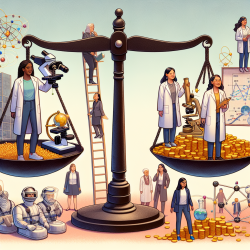In many low- and middle-income countries (LMICs), the task of fetching water and solid fuel is a daily reality for millions. This seemingly mundane task carries significant health, gender, and economic implications that are often overlooked. A systematic review titled Diverse Health, Gender and Economic Impacts from Domestic Transport of Water and Solid Fuel: A Systematic Review sheds light on these critical issues.
The Health Burden
The physical demands of carrying heavy loads of water and solid fuel have been linked to various health problems. These include musculoskeletal pain, fatigue, and even long-term disabilities. The review highlights that women and children are disproportionately affected due to their primary role in these tasks. The repetitive strain from carrying loads on the head or back can lead to chronic pain and other serious health issues.
Gender Dynamics
The responsibility for water and fuel collection predominantly falls on women and girls. This reinforces traditional gender roles and limits opportunities for education and economic advancement. The review found that in many communities, cultural norms prevent men from participating in these tasks, further entrenching gender inequalities.
Economic Implications
The time spent collecting water and fuel is time not spent on education or income-generating activities. This opportunity cost is significant, especially for women who could otherwise engage in economic activities that contribute to household income. Improved access to water and modern energy sources can free up time for these activities, potentially lifting families out of poverty.
Moving Towards Solutions
The review suggests several strategies to mitigate these negative impacts:
- Improved Infrastructure: Investing in piped water systems and clean energy technologies can reduce the need for long-distance travel to collect resources.
- Policy Interventions: Policies that encourage gender equality in resource management can empower women and improve community outcomes.
- Technological Innovations: Developing tools that make carrying loads easier can reduce the physical strain on individuals.
The Role of Practitioners
Practitioners in the field can play a crucial role by advocating for policies that address these issues. They can also engage in further research to develop innovative solutions tailored to specific community needs. By understanding the intricate link between resource collection and broader socio-economic factors, practitioners can contribute to meaningful change.
To read the original research paper, please follow this link: Diverse Health, Gender and Economic Impacts from Domestic Transport of Water and Solid Fuel: A Systematic Review.










